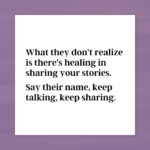
A Safe Space to Be Heard: Why Talking Can Heal More Than Silence
September 12, 2025
How to Prepare for Your First Confidant Session
September 12, 2025Why Talking to a Stranger Can Feel Safer Than Talking to a Friend
You know that moment when a friend says, “You can tell me anything”? It feels reassuring at first. Then, when the truth presses at your lips, you hold back. The words weigh heavily, but they never leave.
This is because there’s something strange about being human.
Humans long to be understood, yet we fear being exposed.
We want someone to listen, but we hesitate to share.
Why does that happen? Even when the heart is aching to be heard?
It’s because talking is never just talking. Every word carries a risk. Every confession feels like handing over a piece of yourself. When the person on the other end is a friend, the stakes feel even higher.
Now picture the opposite.
Picture sitting across from a stranger. No shared past. No shared future. No expectations to live up to. Just presence. Just listening. Suddenly, the risk feels smaller. The burden feels lighter. The silence starts to break.
This is why talking to a stranger can sometimes feel safer than opening up to your closest friend.
The invisible weight of friendship
Friends love us. They laugh with us, stand by us, and support us in countless ways. But that love comes with layers. With history. With memories. With expectations.
If you open up to a friend about your darkest fears, you might wonder, Will they think differently of me? The next time you meet, will they see your laughter as less genuine, or will they remember your tears instead?
The truth is, even the kindest friend carries your story forward. They may not mean harm. They may even believe they’re helping. But once the words are out, you can’t control how they’re remembered.
This is why many people swallow their pain in silence. They protect friendships by hiding their suffering. And in doing so, they carry heavier loads than they should.
Strangers hold no history
A stranger, however, begins with a blank page. They know nothing about your family drama. Strangers don’t remember your childhood mistakes. They don’t care about the reputation you’ve built in your circle. Strangers only hear the words you choose to share in that moment.
That blankness is liberating. It means you can drop the mask. You can be raw, messy, and unfiltered. You can say things you’d never dare whisper to someone who knows your past.
The best part? Once you’re done talking, the stranger doesn’t weave your story into your everyday life. You can walk away lighter, without worrying about judgment following you tomorrow.
The psychology of opening up to strangers
It may sound unusual, but psychology backs this up. Researchers call it the “stranger-on-a-train phenomenon.” People often find it easier to disclose secrets to someone they don’t know and may never see again. The lack of long-term consequences makes it feel safer.
In fact, a study shows that people share more sensitive, vulnerable information when they feel anonymous. Strangers create that sense of anonymity, even in face-to-face settings.
This is why you might find yourself telling your deepest worries to a hairdresser, a taxi driver, or someone seated next to you on a bus. You don’t expect to see them again, so the risk feels smaller.
The burden of keeping it all in
Silence is heavy. When you hold everything inside, the pressure builds. Stress hormones like cortisol spike. Your body tenses. Sleep becomes restless. Thoughts spiral.
Studies have shown that simply talking through emotions reduces their intensity. Verbalizing pain doesn’t solve it, but it makes it manageable. It’s like releasing steam from a boiling pot before it explodes.
But if friends feel unsafe and therapy feels intimidating, where does that leave you? That’s where strangers—safe strangers—come in.
The role of safe spaces
Imagine a place where you’re not judged, not pitied, not “fixed.” A place where the only expectation is honesty. That’s what a safe space with a stranger offers. It’s not therapy. It’s not clinical. It’s simply a presence.
Here, you don’t have to edit your feelings. You don’t have to protect someone else’s emotions. You don’t have to fear gossip or whispers. You just talk. And someone listens.
Why do people hesitate to talk to friends?
There are many reasons people stay quiet with their friends, even when the friendship is strong:
- Fear of judgment – Worrying that friends will see them differently.
- Protecting friendships – Avoiding burdening friends with heavy stories.
- Risk of exposure – Knowing that once a secret is shared, it can spread.
- Unwanted advice – Friends often respond with solutions when all you want is to be heard.
- Loss of privacy – The fear that the story will live forever in the circle.
With strangers, those fears melt away.
The stigma of mental health in Kenya
Kenya, like much of the world, is struggling with mental health stigma. More than 1 billion people are living with mental health disorders, according to new data released by the World Health Organization (WHO ). In Kenya, depression alone affects about 1.9 million people. Suicide cases have risen sharply. Kenya reports an average of 4 deaths per day from suicide and an average of 470 cases of attempted suicide reported to the police, according to KEMRI
Yet many never seek help. They fear being labeled “weak” or “mentally ill.” They fear being dismissed with, “just pray about it,” or “others have it worse.” So they stay silent.
This silence kills.
And that’s why alternative safe spaces—confidential, non-judgmental conversations with strangers—can save lives.
What happens when you finally speak
Picture this. You’ve been carrying a secret for years. It keeps you awake at night. It eats at your confidence. One day, you finally tell someone—a stranger. They don’t flinch. They don’t interrupt. They just listen.
Suddenly, your chest feels lighter. The storm in your head calms. You walk away knowing you’re not invisible.
That’s the power of speaking. That’s the magic of being heard.
Why talking to a stranger works
Talking to a stranger works because:
- There’s no judgment.
- There’s no history.
- There’s no risk of gossip.
- There’s no hidden agenda.
- There’s only presence.
It’s not about advice. It’s not about solutions. It’s about being seen, heard, and validated.
When strangers become lifelines
Strangers have saved lives. Think of helplines where people call in the middle of the night. Think of crisis hotlines where someone just listens. Think of Uber drivers or hairdressers who have heard confessions that friends never will.
Sometimes, all it takes is one safe conversation to stop someone from giving up.
My safe space
That’s why I created this space. Not as a therapist. Not as a counselor. But as a human being. Someone who understands that people are carrying invisible weights. Someone who knows that silence is heavy. Someone who believes that everyone deserves to be heard.
With me, your story stays with me. It doesn’t leak into your circles. It doesn’t get recycled into gossip. It doesn’t change how anyone else sees you.
I’m here to listen. That’s it.
How it works
You book a session. You choose whether it’s 30 minutes or one hour. You talk about whatever you want. It could be your struggles, your dreams, your heartbreaks, or your fears. I listen. I keep it private.
You can cry. You can laugh. You can vent. You can sit in silence. There’s no pressure, no performance, no judgment. Just you, your story, and someone who cares.
Why you should try it
If you’ve been bottling things up, try sharing them in a safe space. If you’re scared to open up to friends, try opening up to a stranger. If you feel invisible, try being heard.
Sometimes, one conversation can change everything.
Take the step today
Don’t carry the weight alone, don’t let silence choke you, and don’t wait until the pressure explodes.
Reach out to me today. My WhatsApp number is 0745464330. You can also use the same number to book a session via M-Pesa.
Your story deserves to be heard. And sometimes, the safest place to tell it is with someone who simply listens.






